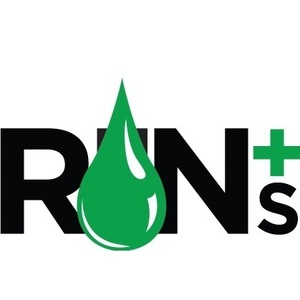EPA: 1.26 billion RINs generated in February

March 26, 2021
BY Erin Krueger
More than 1.26 billion renewable identification numbers were generated under the Renewable Fuel Standard in February, down from 1.54 billion reported for the same month of last year, according to data released by the U.S. EPA in mid-March.
More than 41.13 million D3 cellulosic biofuel RINs were generated in February, including 32.38 million generated for compressed renewable natural gas (RNG) by domestic producers, 5.8 million generated for liquefied RNG by domestic producers, 2.92 million generate for compressed RNG by importers, and 29,238 generated for cellulosic ethanol by domestic producers.
Total D3 RIN generation for the first two months of 2021 reached 46.4 million. That volume includes 36.26 million generated for compressed RNG by domestic producers, 6.98 million generated for liquefied RNG by domestic producers, 2.92 million generated for compressed RNG by importers, and 232,490 generated for cellulosic ethanol by domestic producers.
More than 305.9 million D4 biomass-based diesel RINs were generated in February, including 164.32 million generated for biodiesel by domestic producers, 79.38 million generated for nonester renewable diesel by domestic producers, 50.23 million generated for nonester renewable diesel by foreign entities, 11.49 million generated for biodiesel by importers, and 471,560 generated for renewable jet fuel by domestic producers.
Advertisement
Total D4 RIN generation for the first two months of this year reached 606.15 million. That volume includes 325 million generated for biodiesel by domestic producers, 150.22 million generated for nonester renewable diesel by domestic producers, 100.84 million generated for nonester renewable diesel by foreign entities, 24.3 million generated for biodiesel by importers, 4.86 million generated for nonester renewable diesel by importers, and 935,280 generated for renewable jet fuel by domestic producers.
Nearly 12.25 million D5 advanced biofuel RINs were generated in February, including 7.62 million generated for nonester renewable diesel by domestic producers, 2.56 million generated for naphtha by domestic producers, 1.46 million generated for ethanol by domestic producers, 305,358 generated for renewable heating oil by domestic producers, 292,776 generated for LPG by domestic producers, and 6,860 generated for compressed RNG by domestic producers.
Total D5 RIN generation for the first two months of 2021 reached 31.66 million. That volume includes 22.41 million generated for nonester renewable diesel by domestic producers, 4.48 million generate for naphtha by domestic producers, 3.89 million generated for ethanol by domestic producers, 582,690 generated for renewable heating oil by domestic producers, 292,776 generated for LPG by domestic producers, and 6,860 generated for compressed RNG by domestic producers.
Advertisement
Nearly 901.79 million D6 renewable fuel RINs were generated in February, including 888.76 million generated for ethanol by domestic producers and 13.03 million generated for nonester renewable diesel by foreign entities.
Total D6 RIN generation for the first two months of the year reached 1.98 billion. That volume includes 1.96 billion generated for ethanol by domestic producers, 18.73 million generated for renewable diesel by foreign entities, and 1.01 million generated for ethanol by importers.
No D7 cellulosic diesel RINs have been generated so far this year.
Total RIN generation for the first two months of 2021 was at 2.66 billion, down from 3.11 billion reported for the same period of 2020.
Related Stories
U.S. fuel ethanol capacity fell slightly in April, while biodiesel and renewable diesel capacity held steady, according to data released by the U.S. EIA on June 30. Feedstock consumption was down when compared to the previous month.
XCF Global Inc. on July 8 provided a production update on its flagship New Rise Reno facility, underscoring that the plant has successfully produced SAF, renewable diesel, and renewable naphtha during its initial ramp-up.
The USDA’s Risk Management Agency is implementing multiple changes to the Camelina pilot insurance program for the 2026 and succeeding crop years. The changes will expand coverage options and provide greater flexibility for producers.
EcoCeres Inc. has signed a multi-year agreement to supply British Airways with sustainable aviation fuel (SAF). The fuel will be produced from 100% waste-based biomass feedstock, such as used cooking oil (UCO).
SAF Magazine and the Commercial Aviation Alternative Fuels Initiative announced the preliminary agenda for the North American SAF Conference and Expo, being held Sept. 22-24 at the Minneapolis Convention Center in Minneapolis, Minnesota.
Upcoming Events










